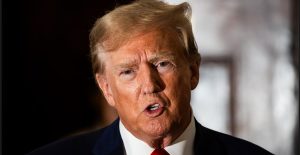Kathmandu — Nepali Congress General Secretary Gagan Thapa has publicly apologized to the people for the incidents of September 8 and 9 (Bhadra 23–24). Accepting his party’s responsibility, he stressed that the Congress must now move forward with self-correction and guide the nation toward stability.
In a video message released on social media, Thapa said: “What happened on that day was unimaginable, whether we wished it or not. Even if you and I were not in government, our party was. That is why the stain on our party’s face cannot be wiped away simply — we must heal it ourselves.”
He urged his party colleagues to treat this as an opportunity to seek forgiveness from the nation.
Damage, Accountability, and Reconstruction
Thapa noted that on September 9, the party’s properties, offices, and members suffered extensive damage. While calling for acceptance of the natural outburst of public anger, he made it clear that those who engaged in premeditated violence must face legal consequences.
“Whoever they are, they must be brought within the reach of the law,” he said firmly.
The general secretary also highlighted the need for Congress to take the initiative in reconstruction. Citing the past when the party joined hands with the Maoists to heal national wounds, he argued that a similar bold initiative is needed again. According to Thapa, the responsibility today is not to fuel further tension but to reconnect a divided society.
Addressing Protesters’ Demands and Party Reform
Thapa underlined that Nepal cannot move forward without addressing the demands raised by Gen Z protesters. He suggested that discussions on forming an interim government could be concluded by tonight.
“Whichever individual the protesters want to see lead the interim government, Congress is not only ready to accept but is also working to create the environment for it,” he said.
Looking ahead, Thapa said the Congress will rise stronger from this crisis. He pledged to eliminate unnecessary internal structures and end factionalism within the party. In his view, the country’s deep political polarization has fractured society, and it is Congress’s responsibility to lead the way out of it.






